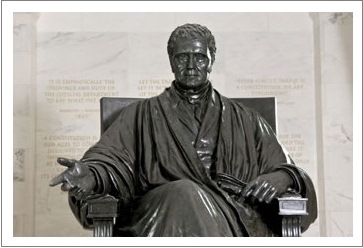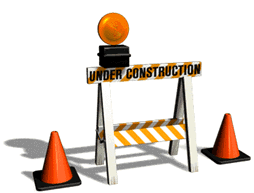As Americans
and per the US Courts; we, the people of the United States, have the freedom and
right to publish the laws of our country, its states, counties and cities.
Before a "code
model" is made into a "law"; it is the property of its developers and
covered by copyright protections - this is fair. But once a "code model" is
incorporated directly or by reference into the laws of the land and we the people are held
responsible to abide by such laws - then it is only right for the people
governed and scrutinized by such laws to be able to copy, analyze, understand
and become part of the processes that generate the laws in the first place.
It is nice for
private parties to make money by making codes models that become laws. But fair is fair
- if you can use a law or code model against me than I need to be able to freely and easily
access it - and - to be able to understand it.
Understanding
comes with sharing thoughts, experiences and reference materials with our peers. We cannot do
this if we cannot freely exchange the texts of the laws between ourselves.
The web is the
world of information and understanding. Hyperlinked texts and reference
materials are the way the new generations are learning to understand our world -
this information should not be held back from them nor be made inconvenient to
obtain, discuss and share.
Opinion & Belief of Robert J. May
=======================================================================


"This case involves a
comprehensive code specifically created for enactment into law and designed
broadly to regulate the primary conduct of private parties.
The court of appeals’ holding that such a code may be copied by interested
members of the public is correct, it is consistent with the views of the
only other court of appeals to address the same issue, and it does not conflict
with any decision of any other court of appeals. There is a broad range of
differing governmental uses of a wide variety of different types of privately
copyrighted materials."
"Violations of the
codes are subject to criminal sanctions. R. 99; see, e.g., Standard Building
Code § 110 (“Any person * * * who shall violate a provision of this code, or
fail to comply therewith * * * shall be guilty of a misdemeanor.”)."
"CONCLUSION"
"The petition for a
writ of certiorari should be denied.
Respectfully submitted."
THEODORE B. OLSON
Solicitor General - Counsel of Record
ROBERT D. MCCALLUM, JR.
Assistant Attorney General
PAUL D. CLEMENT
Deputy Solicitor General
JAMES A. FELDMAN
Assistant to the Solicitor General
ANTHONY J. STEINMEYER
MARK W. PENNAK
Attorneys
Department of Justice
Washington, D.C. 20530-0001
(202) 514-2217
May 2003
=======================================================================
Here is our rundown on the Court of Appeals, Fifth Circuit. June 7, 2002.
Paragraph 41:
"The primary
objective of copyright is not to reward the labor of authors but "[to] promote
the Progress of Science and the useful Arts."
Article I, Sec. 8, clause 8 [U.S. Constitution].
To this end, copyright law assures authors the right to their original
expression, but encourages others to build freely upon the ideas and information
conveyed by a work. This principle, known as the idea/expression or
fact/expression dichotomy, applies to all works of authorships.
Feist Publications, Inc. v. Rural Tel. Serv. Co.,
499 U.S. 340, 349, 111 S.Ct. 1282, 1289-90, 113 L.Ed.2d 358 (1991).
The statute excludes from copyright protection ideas, procedures, processes,
systems, methods of operation, or information in the public domain. See
17 U.S.C. § 102(b); Feist Publications, 499 U.S.
at 350, 111 S.Ct. at 1290 (citation omitted); Harper & Row Publishers, Inc. v.
Nation Enters., 471 U.S. 539, 547-48, 105 S.Ct. 2218, 2223, 85 L.Ed.2d 588
(1985). If an idea is susceptible to only
one form of expression, the merger doctrine applies and § 102(b) excludes the
expression from the Copyright Act. As the Supreme Court has explained it, this
"idea/expression dichotomy strike[s] a definitional balance between the First
Amendment and the Copyright Act by permitting free communication of facts while
still protecting an author's expression."
Harper & Row, 471 U.S. at 556, 105 S.Ct. at 2228."
Source:
http://bulk.resource.org/courts.gov/c/F3/293/293.F3d.791.99-40632.html
Cached Files:
Case-No_99-40632_United-States-Court-of-Appeals-Fifth-Circuit_June-7-2002_293-F.3d-791-Citation
Please review "Reasons For Electrical Codes & Laws"
Access the Database(s) of Laws, aka "Codes"
|
|
|
 |
*This page and web site is finished...
I just like the blinking light!
|
==================================
======================================
If
you have any questions on electrical issues, you can contact us via
telephone at (619) 757-7500 or via email to or
regular mail below:
Service@RobertsElectricService.com.
Roberts Electric
Service, Inc.
302 Washington St #100
San Diego, CA 92103 Copyright ©2004-2012 Roberts Electric Service, Inc.
|






